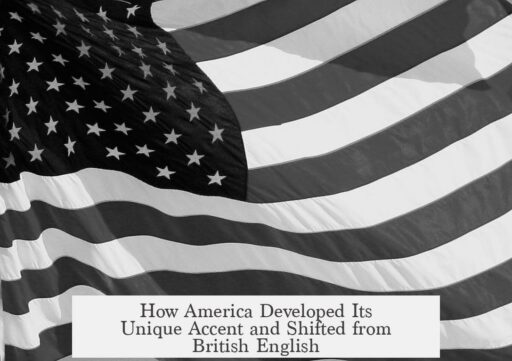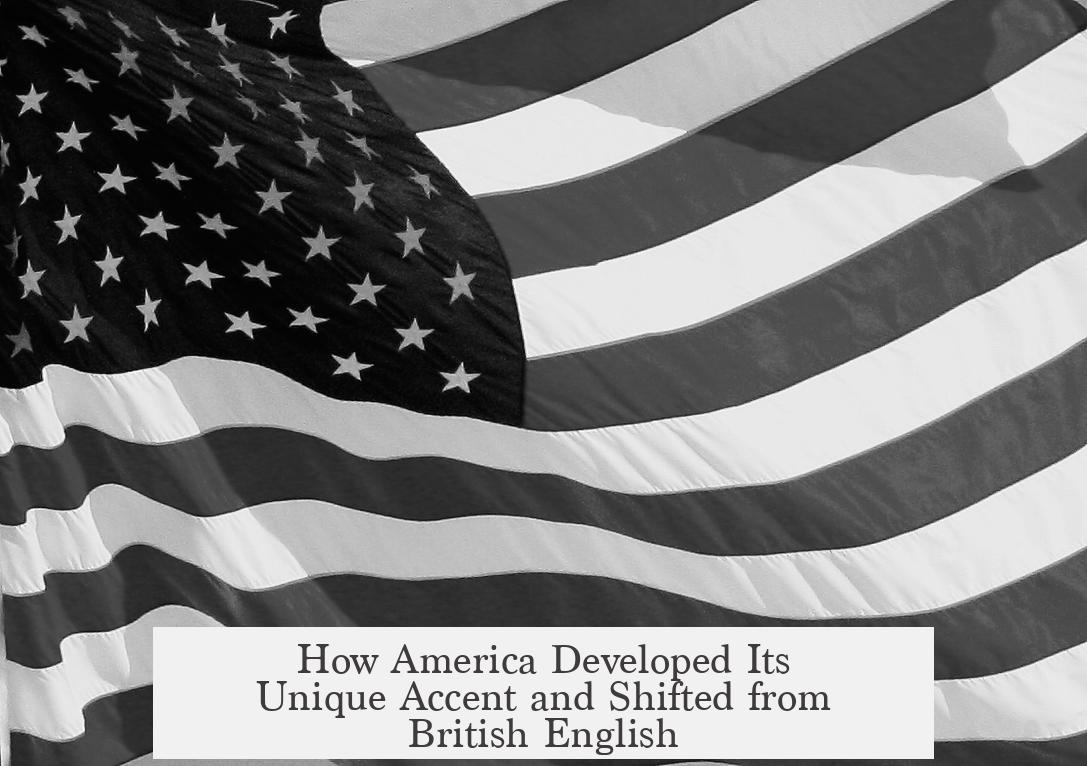America did not lose its British accent; rather, American English evolved separately from British English after colonization, following a unique path shaped by immigration, geographic isolation, social, and political factors.
The divergence of American and British accents began early during the establishment of the first colonies. From the outset, settlers spoke with various British dialects influenced by their regions of origin. Over time, accents in both the United States and Britain changed significantly, making the accents of today very different from those heard in the 18th century. This change is natural for all languages and dialects, as they continuously evolve with their speakers.
Two main factors affect how quickly dialects change: population size and geographic isolation. England, with a larger population, experienced faster linguistic changes, while the smaller, isolated American colonies saw slower shifts. This isolation meant that American accents preserved some older features of British English that have since disappeared in modern Britain.
One notable example is rhoticity—the pronunciation of the “r” sound at the end of words or before consonants. American English retains the hard “r” sound common in 17th-century British speech. Meanwhile, many British dialects, especially in the south of England, shifted toward non-rhotic accents, dropping the pronounced “r.” Linguists believe this change occurred after the colonization period, causing North American English to sound closer to older British English than modern British accents.
American English reflects a blend of influences due to the diverse origins of settlers. Different colonies housed varying mixes of British, Irish, Scottish, Dutch, German, and African populations. These influences merged with native dialects, resulting in numerous regional American accents, such as the Boston and Southern accents. Intriguingly, certain American accents still contain elements once common in British dialects but now rare or lost in the UK. For instance, the Boston accent retains traits from older British forms. Southern accents, especially in Georgia, show similar historical British connections.
The influx of immigrants from outside the British Isles further shaped how American English differed. The cultural and geographic distance from England meant that new linguistic traits from Dutch, German, Irish, and other immigrant groups blended into local speech patterns. This melting pot effect enriched American English and diversified its accents, especially in the northern and midwestern states.
Political and social factors also accelerated the distinct identity of American English. During and after the colonial period, influential Americans deliberately changed spelling and pronunciation to mark their independence from Britain. Noah Webster, a key figure, promoted an American language through his dictionaries by simplifying spellings and favoring phonetic consistency. For example, Webster altered “colour” to “color” and removed silent letters to distinguish American English visually and phonetically from British norms. This linguistic separation supported a sense of autonomy and cultural identity.
In Britain, Received Pronunciation (RP) emerged as a “standard” accent through public school education at elite institutions like Eton and Oxford. RP reduced regional accent distinctions and became associated with social prestige. However, RP is less common today, and a variety of regional British accents continue to evolve independently. This divergence contrasts with the American experience, where no single standardized accent overtook regional varieties to the same extent.
In sum, it is inaccurate to say America lost its British accent. Instead, American and British English developed along separate, parallel trajectories since colonization. Both versions retain characteristics of their shared ancestor but have adapted uniquely to their contexts and influences. American English preserves some features closer to 17th-century British English, reflecting the historical moment of separation and ongoing influences from immigration, isolation, and political will.
| Key Aspect | Explanation |
|---|---|
| Early Divergence | Colonists spoke various British dialects; accents diverged from early on. |
| Geographic Isolation | Slower changes in the US due to smaller, isolated populations. |
| Rhoticity | American English kept hard “r” sounds; British English mostly lost it. |
| Immigration | Mix of non-British immigrants influenced and diversified US accents. |
| Noah Webster’s Reforms | Intentional spelling and pronunciation changes to mark American identity. |
| British RP Accent | RP standardized British English pronunciation, reducing regional accents. |
| Regional Accents | Varied regional accents exist in both the US and UK due to mixed origins. |
Various voices from both sides confirm that neither modern Americans nor modern Britons use the same accents as their ancestors. The change represents evolution, not loss. The American “British accent” remains, but it lives on mainly in older features preserved uniquely in the US. Regional American accents testify to the dynamic, layered history of English across the Atlantic.
- America’s accent evolved in isolation, keeping older British features.
- Immigration added diverse linguistic influences, shaping American English.
- Political moves, like Noah Webster’s reforms, aimed to separate linguistically from Britain.
- British English also evolved distinctly, notably with RP and non-rhotic shifts.
- Regional accents in both countries reflect varied origins and histories.
1. Why does the American accent sound different from modern British English?
The American accent developed separately from British English due to geographical isolation from England and diverse immigrant influences. Both accents continued evolving differently over time.
2. Was the American accent ever closer to older British English?
Yes. Some American accents resemble 17th-century British English more closely than today’s British accents. For example, Americans kept the hard “r” sound lost in many British dialects.
3. How did immigration affect the American accent?
Immigrants from places like Germany, Ireland, and Scotland influenced American English’s development. Their various accents blended with colonial dialects, creating diverse regional American accents.
4. Did politics play a role in changing American English?
Yes. Colonists, including figures like Noah Webster, intentionally changed spelling and pronunciation to create a distinct American identity separate from Britain.
5. Are there American accents that still sound like old British dialects?
Yes. Some accents, such as Boston and parts of the South, preserve features from older British dialects that have since faded in the UK.



